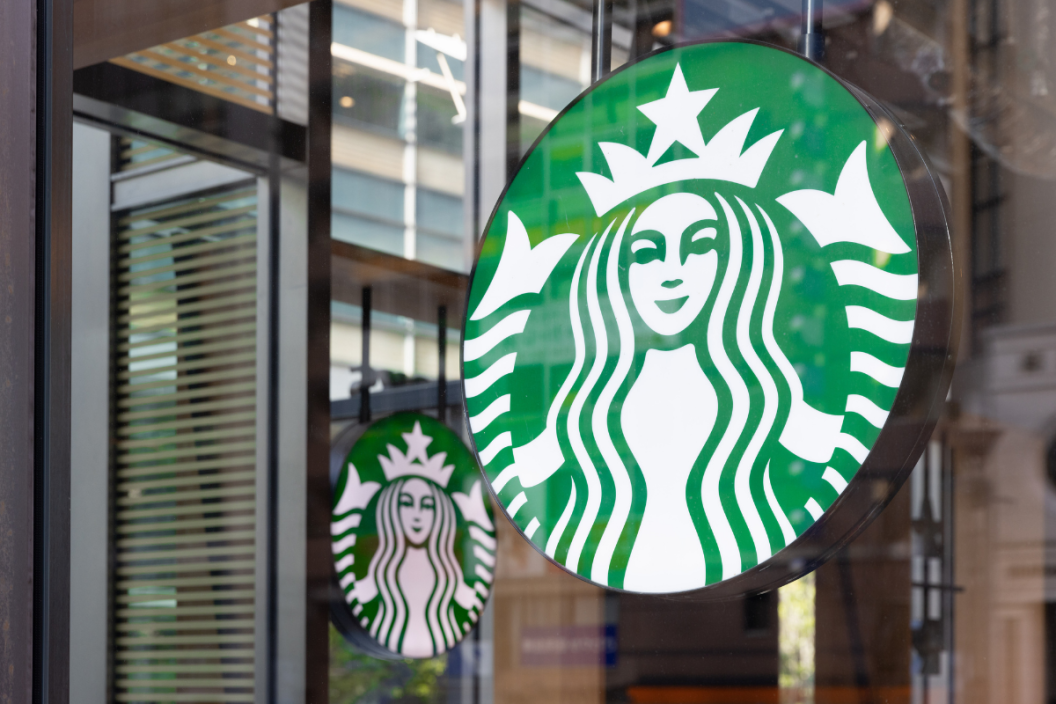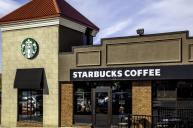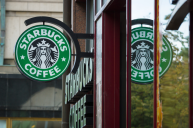Starbucks' chokehold on the coffee industry has only grown in strength since the Seattle-based company first debuted in 1971, topping off at nearly 35,000 locations and growing. The specialty coffee behemoth is quickly becoming the world's most popular chain opening over 3,000 new locations since the start of 2020 and a plan to open 2,000 more during the 2022 fiscal year.
Despite the pandemic's continued hindrance on the economy, Starbucks was still able to make it out on top. Now the employees that keep the cafes running are asking for their fair share of the company growth in a wave of unionizing efforts sweeping the company nationwide.
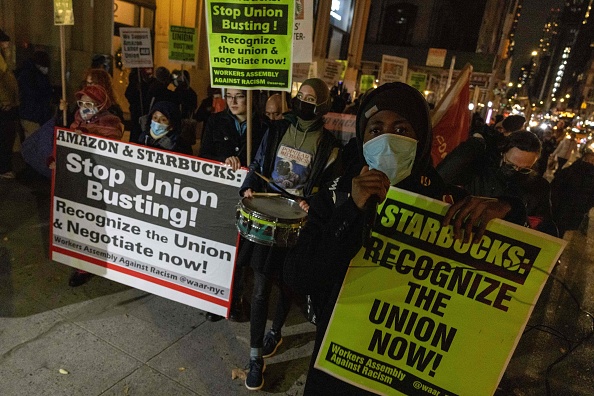
(Photo by YUKI IWAMURA/AFP via Getty Images)
Union campaigns have been gaining ground ever since one outpost in Buffalo, NY voted to unionize at the end of 2021 to become Starbucks Workers United, sending shockwaves throughout the company's 9,000 U.S.-based stores that employ 235,000 people according to Forbes. This also follows major labor strikes from companies including Frito-Lay and Kelloggs- the latter of which went on for three months between October and December of last year.
According to Maggie Carter, a Starbucks barista of 3 years at a Knoxville, TN location and a kingpin in the store's labor organizing efforts, the pandemic has worsened working conditions that were already lacking. "The pandemic definitely exacerbated health and safety concerns on the floor, there were multiple times when the protocol wasn't able to be met to the best of our ability."
Carter's reasons for seeing a need for a union echoed conditions described by other locations in the movement who detailed staffing issues and inadequate training all while demand has skyrocketed and baristas everywhere have no choice but to pick up the slack.
Restaurant labor has been known to be particularly back-breaking work where long shifts requiring physical and mental stamina are compensated in stunted minimum wage salaries. Many of those workers have noted that customers have become downright abusive since the pandemic as patrons quarrel over mask mandates and product shortages among other situations, berating and cursing staff and even getting physically violent at times.
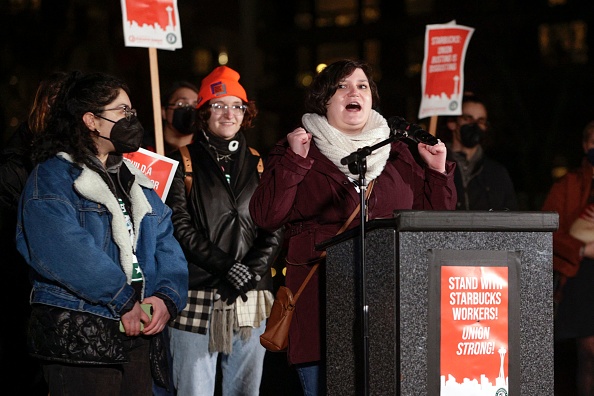
Sarah Pappin (R), shift supervisor of one of the two Starbucks locations that announced plans to unionize(Photo by Jason Redmond / AFP) (Photo by JASON REDMOND/AFP via Getty Images)
"COVID-19 has only increased the amount of customer management we baristas have to do, on top of our already-demanding jobs," said a worker from a San Antonio location that wished to remain anonymous, "many frustrated customers have taken to blaming us for the consequences of a global pandemic."
Compared to other fast-food chains, Starbucks has long aligned itself with liberal values by offering full benefits for part-time employees, financial assistance for workers looking to attend higher education, and even comprehensive healthcare policies for the company's transgender workers. As a single mother herself, Carter has sung the praises of these benefits as a major influence on her joining the crew in the first place.
Even though Starbucks puts on a progressive face going as far as to refer to their entire employee base as "partners," Carter says that many of her fellow baristas do not feel supported by managers and corporate officials and believes it to be a tactic to assuage workers. "Even with all the benefits, at the end of the day, it comes down to pay," she says. "It's great that they offer health insurance and they offer to pay for my school, but if I can't afford my rent, what does any of that matter?"
When ask about her goal with the larger Starbucks Workers United organization, Carter says bluntly, "True partnerships is what we're advocating for."
Baristas everywhere are saying that their store already runs as a collective family and want to "officiate the support (they) already have for one another" according to a letter signed by the staff of a San Antonio location proclaiming their attempt to unionize. These letters are sent from individual stores to the company's Seattle headquarters to let corporate know their intent to unionize, asking for officials to meet with organizers in good faith and to come to a mutually beneficial agreement.
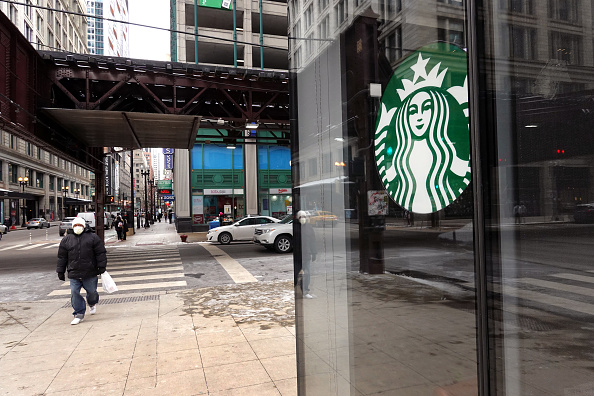
(Photo by Scott Olson/Getty Images)
Workers however have reported that the company was partaking in union-busting tactics as the movement grows more powerful. Starbucks Workers United claims that seven baristas were fired from a Memphis location in a retaliatory response to their attempt to unionize. Carter has detailed how regional managers are now showing up to her store more often and doing more work on the floor in an attempt to seem more supportive and deter people from voting.
"They're taking out the trash, doing dishes,or suddenly miraculously able to fix a machine that's been broken for months. These were never addressed until we went public with our campaign." Carter believes these actions to only be about saving face despite the company's insistence that they are not anti-union.
Starbuck's executive vice president Rossann Williams issued a company-wide letter in December 2021 after the Buffalo union election stating, "From the beginning, we've been clear in our belief that we do not want a union between us as partners. However, we have also said that we respect the legal process. This means we will bargain in good faith. Our hope is that union representatives also come to the table with mutual good faith, respect, and positive intent."
Though Carter finds the company's response to union efforts as questionable, she stresses that the intent of the movement is to improve working conditions for Starbucks workers everywhere. Carter lauds the support she's gotten from stores everywhere updating her on how corporate officials are handling their own union efforts in order to keep her prepared, and describes the stories of her peers in other parts of the country as "validating" and "a monumental help."
"No matter where you are geographical, we are still partners. It's great to have partners that have been here so long to get through this campaign."
Workers have not demanded customers boycott the company, and Carter goes even further to suggest more people show up to Starbucks and show support for the baristas. "Tip extra for the hard works they are pulling, take up space, and show support." The final tip she shares is probably the simplest to support the cause, "be kinder."
